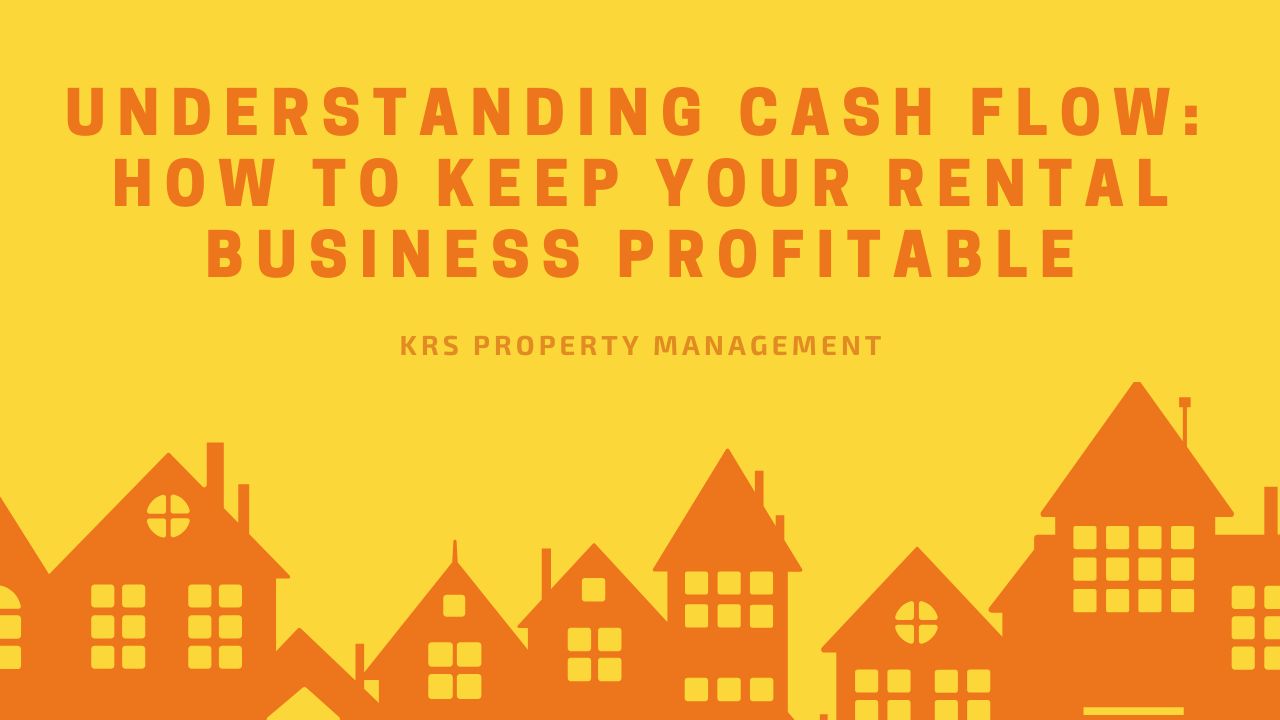Key Takeaways
Track Every Dollar- Monitoring rental income, expenses, and vacancy trends helps landlords maintain consistent cash flow and spot opportunities to improve returns.
Plan for the Unexpected- Setting aside reserves for repairs, maintenance, and capital improvements keeps properties functional and tenants satisfied without derailing monthly budgets.
Think Long-Term Profitability- Understanding mortgage payments, management fees, and tax implications empowers Charlottesville landlords to protect their investments and grow financial stability.
Ever find yourself wondering why your rental income looks great on paper but doesn’t quite feel the same in your bank account? That’s where understanding cash flow becomes essential. For many landlords, cash flow is the true measure of how well their rental business is performing.
It’s not just about collecting rent; it’s about managing expenses, anticipating maintenance costs, and planning for future investments with confidence. When done right, it keeps your business running smoothly and your profits steady.
At KRS Charlottesville, helping investors in Charlottesville strengthen their rental cash flow is a top priority, ensuring every property continues to perform at its best.
8 Essentials Every Charlottesville Landlord Should Know to Master the Money Flow
To keep your rental business thriving, you need to understand what truly drives profit. These eight key elements will help Charlottesville landlords :
1. Gross Rental Income
Gross rental income is the total rent and recurring fees you collect from residents before expenses, measured monthly or annually to assess cash inflows for Charlottesville properties. It includes base rent, pet fees, parking charges, and any additional revenue that impacts your top line.
Track it with clear spreadsheets or accounting software, recording move-in dates, lease terms, and late fees so you see trends and gaps. Regularly compare market rents in Charlottesville to avoid underpricing, and plan rent reviews to protect profitability without surprising residents.
2. Operating Expenses
Operating expenses are the ongoing costs that keep a property functional and compliant, including property taxes, insurance, utilities you cover, HOA dues, and local licensing fees that apply in Charlottesville.
These expenses reduce your net cash flow, so accurate tracking is essential for realistic budgeting.

Categorize expenses into fixed and variable items, and separate routine spending from capital projects. Regularly review insurance and utility contracts, audit tax assessments for errors, and build a cushion in your Charlottesville budget so unexpected costs do not derail monthly profitability.
3. Maintenance and Repairs
Maintenance covers routine tasks like HVAC servicing, gutter cleaning, and landscaping, while repairs handle sudden failures such as a leaking roof or broken furnace.
For Charlottesville properties plan seasonal checks to prevent weather-related damage and keep residents comfortable through hot summers and cold snaps.
Set aside a dedicated reserve for repairs and a longer term fund for replacements, estimating costs based on property age and condition. Schedule inspections, document fix records, and build a list of reliable local contractors so issues are resolved quickly and expenses stay predictable.
4. Vacancy Rate
Vacancy rate measures how often units are empty and directly affects cash flow, as empty units generate no rent. Calculate it by dividing vacant unit months by total unit months, and use local Charlottesville vacancy trends to set realistic assumptions for your portfolio.
Minimize downtime with proactive marketing, quick turnarounds between residents, and reasonable rent adjustments that reflect Charlottesville demand.
Focus on resident retention through responsive maintenance, clear communication, and flexible lease options to reduce turnover costs and improve long term profitability.
How Property Management Saves You Time and Money
5. Property Management Fees
If you hire professionals to oversee your rentals, property management fees are part of your monthly operating costs. In Charlottesville, these may include rent collection, lease enforcement, and property inspections, typically charged as a percentage of collected rent or a flat monthly fee.
![]()
Understand what services are included in your contract to avoid hidden charges. Compare quotes locally, but remember that quality service often pays off through lower vacancies and better resident satisfaction.
Efficient management ensures smoother operations and helps protect your investment’s long-term financial health.
6. Mortgage Payments
Mortgage payments usually make up a large portion of your monthly expenses and directly influence your cash flow. They include both the principal and interest portions of your loan, and staying current protects your credit and equity in your Charlottesville property.
To manage them effectively, track when interest rates adjust if you have a variable loan, and consider refinancing if lower rates could increase your net cash flow. Align payment schedules with your rent collection cycle so your finances stay organized and stress-free.
7. Capital Expenditures (CapEx)
Capital expenditures are large-scale improvements that extend your property’s life, such as roof replacements, plumbing upgrades, or new HVAC systems. For Charlottesville landlords, these projects are vital for maintaining property value and attracting long-term residents.
Unlike maintenance, these costs are not monthly but should be budgeted carefully. Plan ahead by estimating replacement timelines and setting aside a percentage of rent income for CapEx reserves.
Doing so prevents financial strain and ensures your properties remain competitive and well-maintained in the local market.
8. Tax Implications
Understanding tax implications helps you maximize your rental profits by leveraging legal deductions. Charlottesville landlords should factor in state property taxes, mortgage interest, insurance, and depreciation when analyzing annual cash flow.

Keep organized records of all property-related expenses and consult a local tax expert to stay compliant with Virginia’s regulations. Strategic tax planning can significantly improve your bottom line, allowing you to reinvest in your portfolio while staying prepared for future financial responsibilities
Bottom Line
Understanding cash flow is the foundation of a profitable rental business, but applying it effectively requires experience and precision. That’s where KRS Charlottesville steps in.
Our local expertise helps Virginia landlords make smarter financial decisions, reduce costly surprises, and keep every property performing at its best.
If you’re ready to strengthen your portfolio’s financial health, reach out to KRS Charlottesville today to discuss strategies tailored to your goals and property needs.







